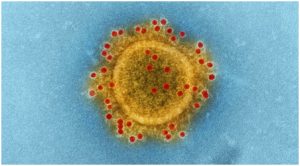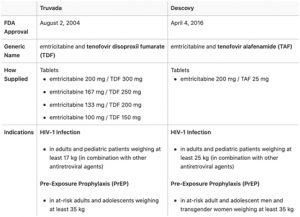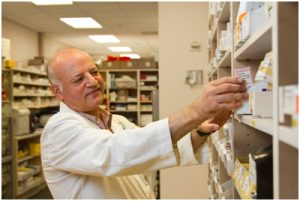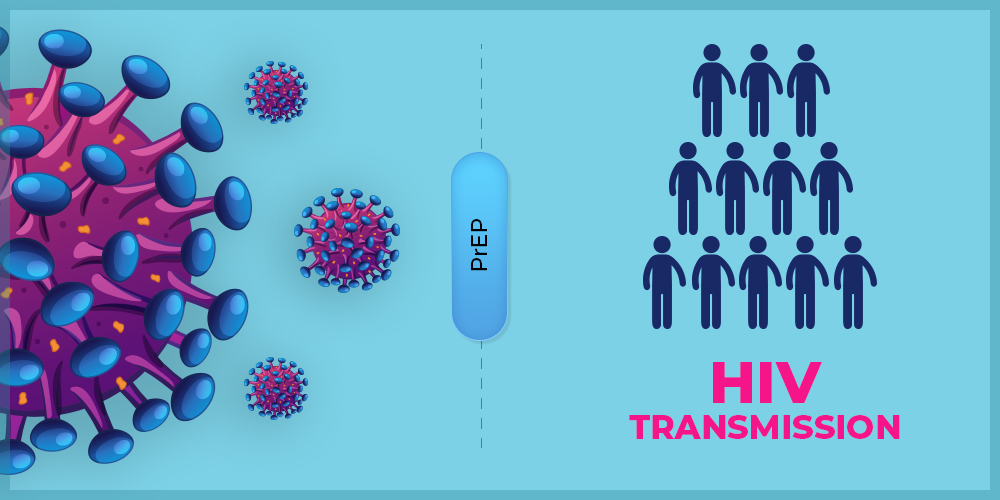While there is currently no cure for HIV, there are many ways to prevent HIV transmission. Some of the most common methods include using proper protection during sexual intercourse and not sharing injectable needles with other people.
But one of the best ways to ensure that you do not contract HIV is to take antiretroviral medication as prescribed by your doctor.

If you have done any research on your own about HIV prevention, you may have heard of the term PrEP. You might be wondering, “does PrEP prevent HIV?”
The answer to this question is yes – but only when used correctly.
This method of taking medication to prevent HIV transmission is known as PrEP, which stands for Pre-Exposure Prophylaxis. The definition of prophylaxis is “action taken to prevent disease.”PrEP helps you to protect yourself from contracted HIV before you are ever exposed to the virus.
PrEP was approved by the FDA for HIV prevention in 2012. The US Centers for Disease Control and Prevention estimated that there are over 1.2 million people at-risk for contracting HIV. Since the medication’s approval, usage of PrEP has increased by 73%, particularly by people between the ages of 24 to 44.
So, how does PrEP help to prevent HIV transmission- and is it something you should consult your doctor about?
We are going to go over some common questions people have about PrEP and help you understand more about this prevention method.
1. What PrEP Does

First, let’s explain just how PrEP works within the body to prevent HIV transmission.
Once HIV enters a host, it cannot be fully removed. The best way to prevent contraction is to take antiretroviral therapy before exposure.PrEP medication prevents HIV from infecting the body by using a combination of two drugs: tenofovir and emtricitabine.
Tenofovir helps to fight off infections, and it is also used to treat liver infections and hepatitis B. Emtricitabine is a nucleoside reverse transcriptase inhibitor (NRTI). This prevents HIV from producing specific enzymes that allow the virus to grow and reproduce throughout the body.
PrEP is not a medication that is prescribed for a person to take for their entire lives. It is typically taken for a period of months to several years when a person is in a situation that puts them at risk for contracting HIV.
You may also be wondering when PrEP starts working.
According to medical research, PrEP must be taken for at least seven days before it is effective, and the pill should be taken as prescribed once a day to provide full protection. If you do not take the medication daily, its effectiveness diminishes.

2. Who PrEP is For

PrEP is recommended for any person who may come into contact with HIV and is at-risk of transmission. The Center for Disease Control recommends you should consider taking PrEP if you meet any of the following criteria- which are considered risk factors of HIV transmission:
- Have had a sexual partner within the last six months who is HIV-positive or whose HIV status is unknown.
- Have had sex without proper use of a condom or had a condom break during sex.
- Have had sex with a partner who was diagnosed with an STD within the past six months.
- Have injected drugs or shared needles, syringes, or other types of equipment with a partner who is HIV-positive.
- Considering getting pregnant with a partner with HIV.
Currently, there are two types of PrEP that are FDA-approved for HIV prevention: Truvada and Descovy.
- Truvada is approved for HIV prevention in adults and adolescents of all genders.
- Descovy is currently only available for cisgender males and transgender females.

Both of these medications have been deemed to be equally effective, but they do exhibit varying side effects. Ultimately, it is up to you and your doctor to determine which PrEP medication is the best choice for you.
3. Why You Should Take PrEP

While HIV is now highly treatable thanks to modern medicine, there is currently no cure. There is also no need to put yourself at risk for HIV transmission as PrEP is available and highly effective. However, there are some things you should know so you can consult your doctor for more information.
First, there are some side effects to be aware of with PrEP. During the first few weeks, many people experience “start-up” side effects, these include:
- Nausea
- Vomiting
- Diarrhea
- Headaches
- Rash
- Loss of appetite.
These will eventually subside.
In some cases, PrEP medication can cause complications with the kidneys and liver, but this tends to only occur when a person already has pre-existing conditions. Most doctors will conduct regular lab tests to monitor the health of these organs, particularly for patients taking Truvada. Descovy does not exhibit these types of side effects.
The reason why PrEP can interfere with the health of the liver and kidneys is because it can increase the levels of creatinine and transaminases enzymes. Since the liver and kidneys act as filters, this can cause them to work harder to filter out these enzymes.
There have also been cases where PrEP has led to bone loss. However, a medical report concluded that this bone loss is completely reversible.
4. How Much Does HIV Prevention Medication Cost?
The cost of a 30-day supply of PrEP is around $2,000. The government is working to make this medication more affordable – and even free – for people who are at risk of HIV transmission.
Check to see if PrEP is covered by your health insurance provider. Most health insurance companies do cover the costs of PrEP medication. A law was recently passed that provides anyone with private health insurance complete coverage for PrEP at no cost. PrEP is also covered by Medicaid and Medicare.
If you do not have insurance or it does not cover the complete cost, you can apply for financial assistance from the US Department of Health and Human Services.
You may also qualify for Gilead’s Advancing Access Program based on your income, and there is an Advancing Access Co-Pay Coupon available to cover out-of-pocket expenses.
Conclusion
Ultimately, the decision to take PrEP needs to be made by your personal physician. If you fit into any of the criteria that could put you at risk for contracting HIV, you should rest assured that there are options to keep you protected.
PrEP is proven to be highly effective and it is readily available.
If you have any more questions about PrEP and how it can help you prevent HIV transmission, please don’t hesitate to reach out!

